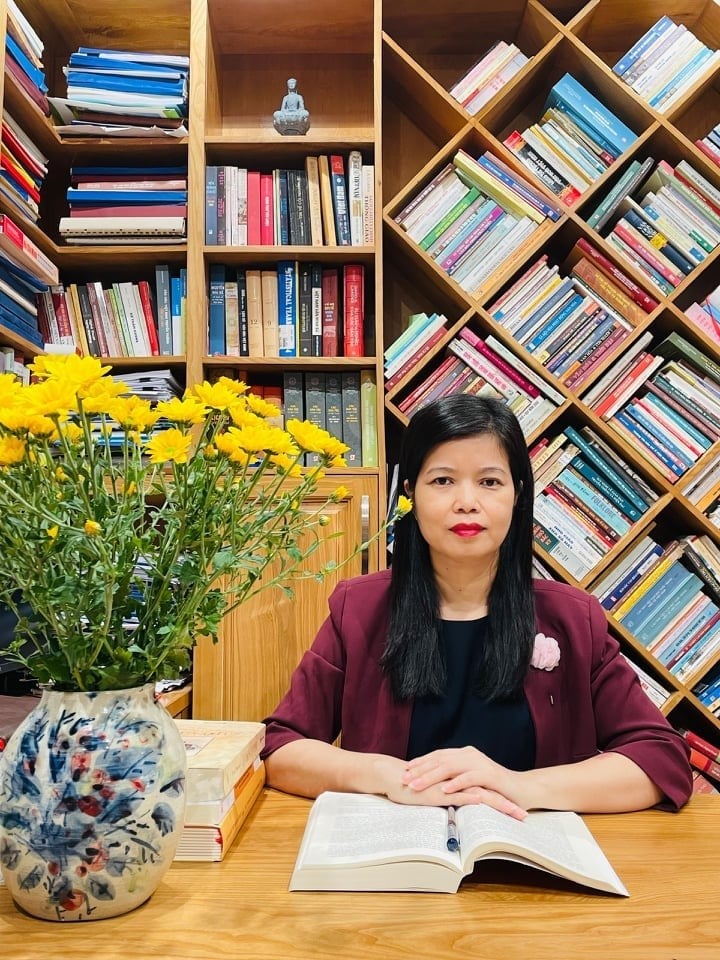
Over the past four decades of innovation, the Party has affirmed that culture is the spiritual foundation of society, the goal and driving force of development. In the Draft Documents submitted to the 14th Congress, this thinking was developed to a new level, when the Party emphasized: "Culture is the foundation of national development". This is a new point that adjusts the concept, expands the content and repositions culture in the national development model.
From "culture is the spiritual foundation of society"
The Resolution of the 4th Central Conference of the 7th term (1993) affirmed: “Culture is the spiritual foundation of society, a driving force for socio -economic development, and at the same time a goal of socialism”. Since then, our Party has consistently affirmed the role of culture as the spiritual foundation of society. This is an important development in theoretical thinking about culture, stemming from a deep understanding of the relationship between culture, people and the country's development process. Through many stages, this thesis has demonstrated its lasting theoretical and practical value, becoming the ideological foundation guiding the Party's cultural strategies.
The content of the thesis includes two basic aspects: First, culture with the core element of the value system has created the spiritual appearance of the nation, including ideology, ethics, lifestyle, beliefs, identity, traditions and social norms. This value system creates stability in social life, guides behavior, creates strength to unite the community and forms the character of the Vietnamese people. In periods of strong national transformation, especially in the early period of renovation, these spiritual values play a pivotal role, helping society overcome difficulties, create consensus, unify will and nurture the desire for development.
Second, the spiritual foundation of culture contributes to creating spiritual motivation for innovation and development. Values such as patriotism, humanity, diligence, creativity, solidarity, and responsibility have become important driving forces of society. The argument that “culture is the spiritual foundation of society” is therefore consistent with the requirements set forth over the past decades, contributing to social stability, strengthening trust, building new people, preserving identity, orienting standards, and creating a healthy spiritual environment.
It can be affirmed that the thesis that “culture is the spiritual foundation of society” has become one of the important theoretical achievements in the Party’s cultural line, creating the basis for planning goals, mottos, strategies and cultural policies in 40 years of renovation. However, along with the strong changes in practical life, emphasizing only the “spiritual foundation” aspect has revealed certain limitations, especially when placing culture in relation to the national development model in the era of national development.
To "culture is the foundation of development"
The Draft Document of the 14th National Congress emphasizes the need to establish a new growth model based on science and technology, innovation, digital transformation, green transformation, energy transformation, structural transformation and quality of human resources... to promote the nation's endogenous strength. In the system of endogenous resources, culture and people are identified as playing a central role, determining the sustainability of development. This context requires the development of the Party's thinking on culture, beyond the scope of "spiritual foundation", to be able to meet the new requirements of the growth model.
First of all, culture needs to be perceived as a pillar of the development model, not just an ideological and ethical orientation. In the modern economic model, limited resources such as land, cheap labor or investment capital cannot create sustainable competitive advantages. Instead, knowledge, creativity, social trust, cultural norms, public ethics, corporate culture and national identity become the decisive factors for growth quality. Therefore, cultural thinking needs to shift from a focus on “strengthening the spirit” to a focus on “creating development momentum”.
In addition, rapid but sustainable development requires culture to play a regulatory and orienting role in the growth model. Without cultural guidance, development can cause consequences such as increasing inequality, eroding social norms, crisis of trust, and decline in the quality of human resources. Therefore, culture needs to be seen as a factor shaping a harmonious development model between economy, society, environment and people.
Furthermore, the Draft Document of the 14th National Congress emphasizes the need to comprehensively develop Vietnamese people in the era of digital transformation, knowledge economy and deep integration. This requires a breakthrough in cultural thinking in the direction of considering culture not only to nurture the spirit but also to create digital capacity, creativity, professional qualities, adaptability and cultural mettle, which are the core requirements of high-quality human resources.
In particular, in reality, culture is increasingly becoming a direct source of economic growth through the development of cultural industries. In the creative economy, added value mainly comes from ideas, copyrights, designs, content technology, cultural assets and artistic creations. Fields such as cinema, music , advertising, design, fashion, games, digital media, cultural tourism, etc. not only contribute to the development of spiritual life but also create large revenues, high-quality jobs, affirm national image and new competitiveness.
The Draft Document of the 14th National Congress identifies the need to vigorously exploit these resources, linked with digital transformation and the digital economy, affirming that culture not only "orients" but also directly contributes to economic growth. This requires the thinking on culture to expand from "spiritual values" to "development resources", from "social field" to "economic driving force".
It can be seen that the shift from the concept of “culture as a spiritual foundation” to the concept of “culture as a foundation for development” not only originates from changes in the new context but is also the result of endogenous development in the Party’s theoretical thinking. This is an inevitable development step of a theoretical system that always moves in step with the country’s development, while reflecting an increasingly profound vision of the role of culture as a fundamental value, a special resource and an essential component of the national development model. The new argument does not negate the old argument but inherits and elevates it to a new level, in accordance with the laws of national development in the era of knowledge economy, digital technology and deep integration.
Establishing culture as the foundation for rapid and sustainable national development requires strong innovation in cultural management thinking, innovation in investment methods, institutional improvement and creation of legal space for cultural resources to fully play their role. Culture must become a criterion in development policy making; cultural industries need to be considered important economic sectors in the growth structure; cultural index and human development index must be considered as measures of sustainable development. This requires a strategic and synchronous vision from the central to local levels, from institutional building to resource mobilization for cultural and human development.
The argument that culture is the foundation of national development in the Draft Documents of the 14th National Congress affirms an important development step in the Party's theoretical thinking on culture, repositioning culture as a strategic resource and endogenous driving force of decisive significance for the national development model. This development not only inherits the core values of cultural policies through the periods but also opens up a new thinking space, in line with the requirements of creating a growth model based on science and technology, innovation, digital transformation and the strength of Vietnamese culture and people. Elevating culture to the position of "development foundation" creates a scientific basis for establishing new development methods, emphasizing the role of culture in regulating, leading and ensuring the sustainability of the entire national development process.
Source: https://baovanhoa.vn/van-hoa/tu-nen-tang-tinh-than-den-nen-tang-phat-trien-181975.html




![[Photo] General Secretary To Lam and National Assembly Chairman Tran Thanh Man attend the 80th Anniversary of the Traditional Day of the Vietnamese Inspection Sector](https://vphoto.vietnam.vn/thumb/1200x675/vietnam/resource/IMAGE/2025/11/17/1763356362984_a2-bnd-7940-3561-jpg.webp)



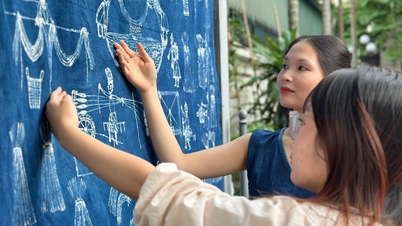

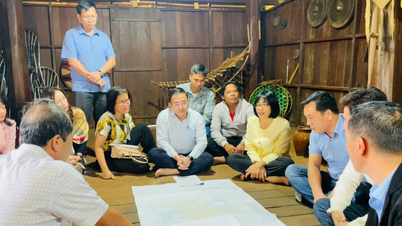

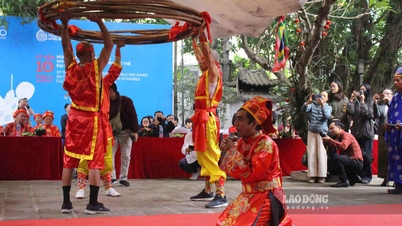

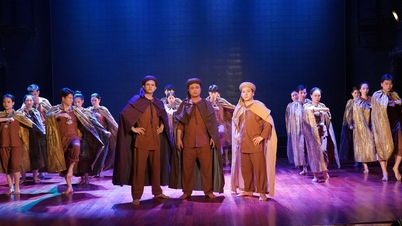





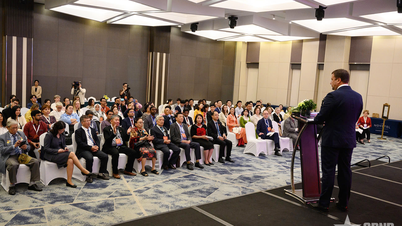

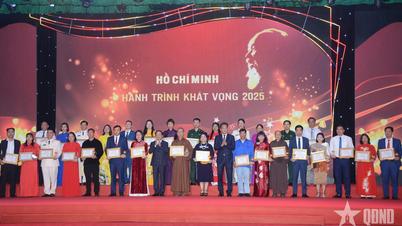




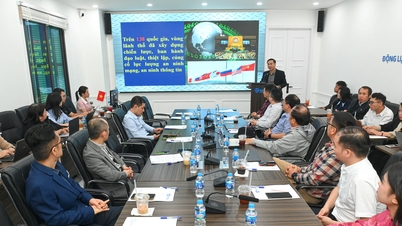









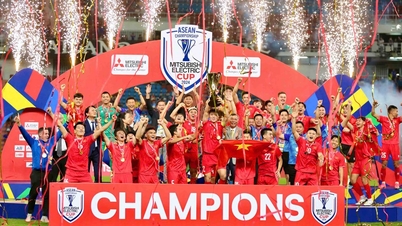


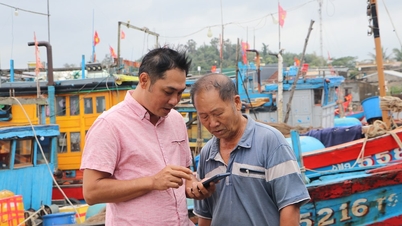






















































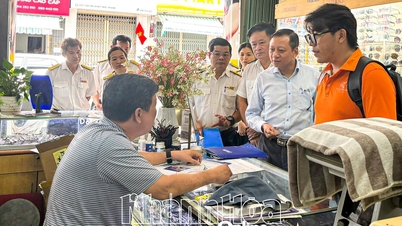


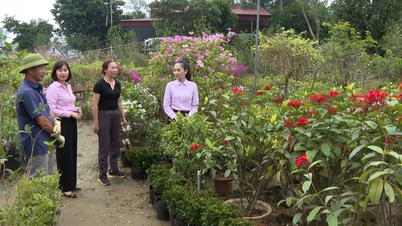

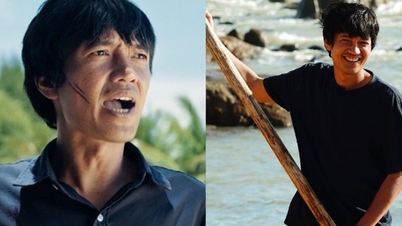
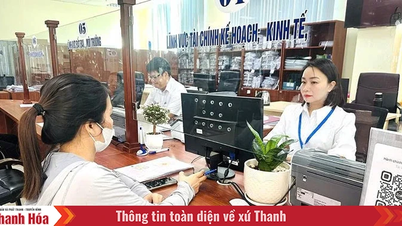

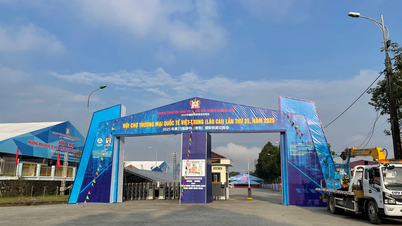











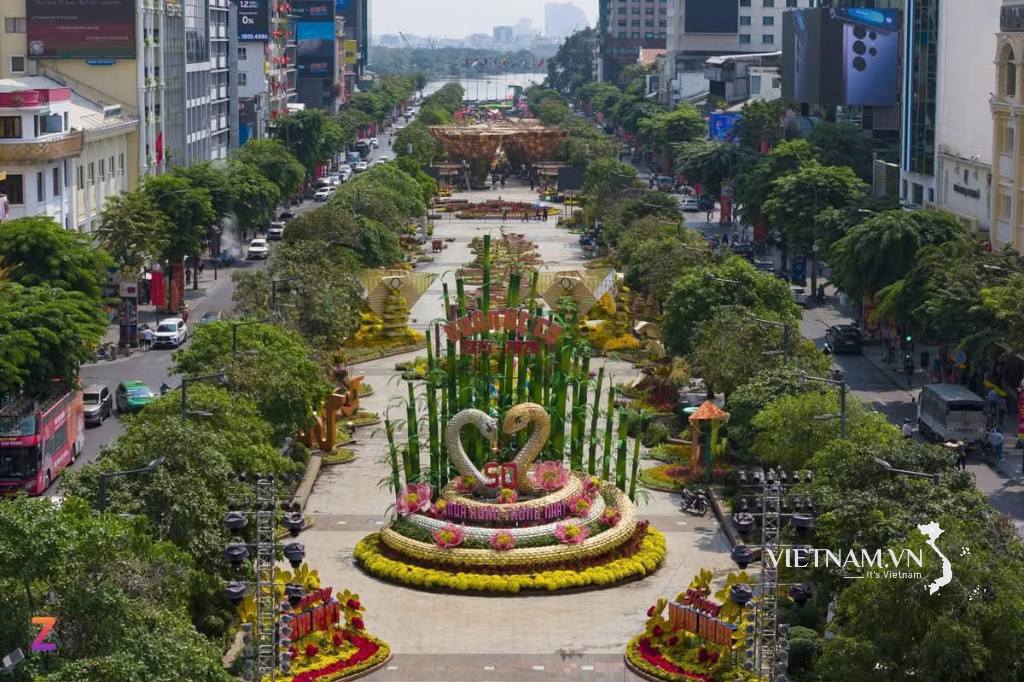
Comment (0)